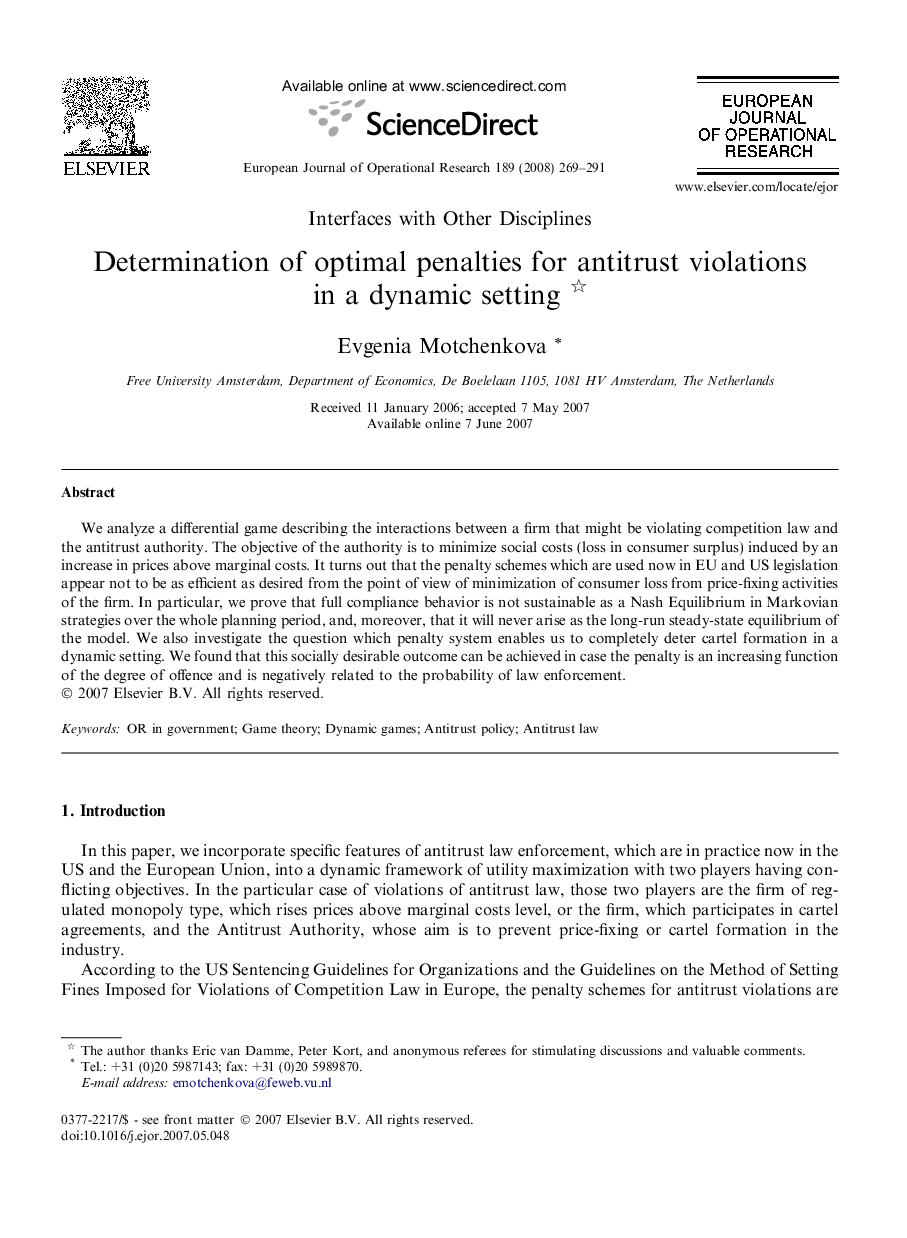| Article ID | Journal | Published Year | Pages | File Type |
|---|---|---|---|---|
| 482869 | European Journal of Operational Research | 2008 | 23 Pages |
We analyze a differential game describing the interactions between a firm that might be violating competition law and the antitrust authority. The objective of the authority is to minimize social costs (loss in consumer surplus) induced by an increase in prices above marginal costs. It turns out that the penalty schemes which are used now in EU and US legislation appear not to be as efficient as desired from the point of view of minimization of consumer loss from price-fixing activities of the firm. In particular, we prove that full compliance behavior is not sustainable as a Nash Equilibrium in Markovian strategies over the whole planning period, and, moreover, that it will never arise as the long-run steady-state equilibrium of the model. We also investigate the question which penalty system enables us to completely deter cartel formation in a dynamic setting. We found that this socially desirable outcome can be achieved in case the penalty is an increasing function of the degree of offence and is negatively related to the probability of law enforcement.
